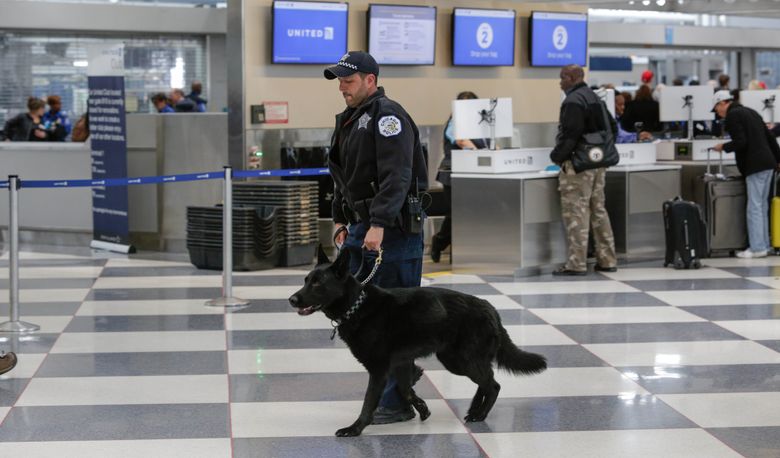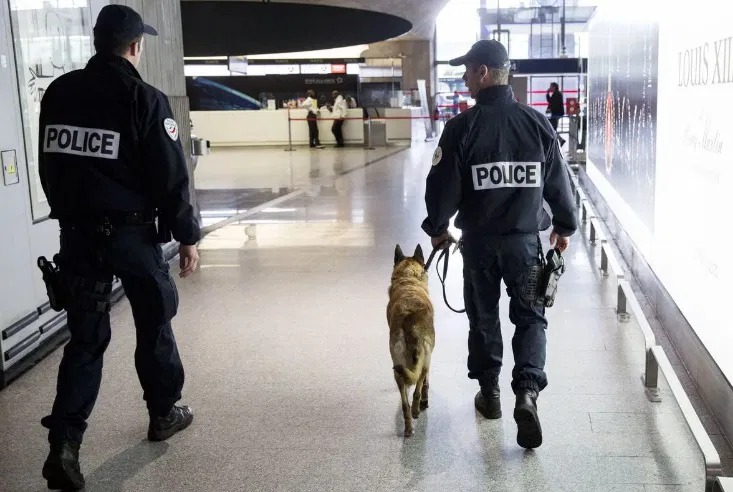A routine security patrol at Beirut–Rafic Hariri International Airport took an unexpected turn when a trained detection dog played a pivotal role in uncovering a case of illegal wildlife trafficking. The discovery highlights the critical role that trained canines play in airport security and the ongoing challenges of protecting endangered species from illicit trade.
Vigilance at Lebanon’s Main Airport
Beirut–Rafic Hariri International Airport is Lebanon’s primary passenger and cargo hub. Serving thousands of travelers daily and handling extensive cargo volumes, the airport enforces strict security protocols. Among its most dependable security tools are detection dogs—specially trained canines capable of identifying illegal substances and items such as narcotics, explosives, and undeclared cash.
These dogs are trained not only to recognize specific odors but also to alert their handlers in subtle, controlled ways—typically by sitting or stopping—so as not to create panic in crowded airport environments.

Routine Patrol Uncovers Suspicious Package
According to reports confirmed by Lebanese airport officials, a working detection dog was conducting routine checks at the cargo terminal when it reacted strongly to a specific parcel marked for transfer. The box, reportedly originating from Central Asia, had been stored in the airport’s freight section for several days pending transit clearance.
While the exterior of the box appeared ordinary, the dog’s focused attention prompted its handler to initiate a closer inspection. Upon noticing ventilation holes in the packaging, the officer followed standard security procedures to escalate the matter.

Security Protocol and Response
Due to the potential risk involved, a bomb squad and additional airport security personnel were called in. The surrounding area was temporarily cleared as a precaution. The box was moved to a secure inspection area for a thorough evaluation by explosives experts.
After ensuring that the package did not pose an explosive threat, the team opened the box and uncovered a case of wildlife smuggling.
Rescue of Endangered Tiger Cubs
Inside the container were two live tiger cubs, in visibly poor health. The young animals were confined in cramped, unsanitary conditions and had been placed in a bed of sawdust soaked in bodily waste. According to veterinarians who later examined the cubs, they were suffering from dehydration, malnourishment, and stress due to inadequate ventilation and extended confinement.
The animals were immediately transferred to an animal care facility in Beirut. Veterinary specialists from Lebanese wildlife organizations began emergency treatment. With continuous care and nutritional support, the cubs began to recover, though they required long-term rehabilitation.
The cubs were eventually placed in a protected wildlife sanctuary where they could receive ongoing care and monitoring.

Investigation into Wildlife Trafficking
Following the discovery, Lebanese authorities, working with international partners, launched an investigation into the source and intended destination of the tiger cubs. According to initial findings shared with regional law enforcement agencies, the cubs had reportedly been acquired from a foreign facility under conditions that violated international animal welfare and trafficking laws.
Further reports indicated the animals may have been part of a litter illegally sold from a zoo in Central Asia. While two cubs were recovered at Beirut airport, the whereabouts of the remaining animals remain under investigation.
Officials from CITES (the Convention on International Trade in Endangered Species of Wild Fauna and Flora) were notified and collaborated with local authorities to trace the smuggling operation. The case has contributed to broader efforts in the Middle East and Central Asia to clamp down on illicit wildlife trafficking.

Importance of Airport Canine Units
The successful interception of the smuggling attempt underscores the importance of investing in and supporting trained canine units at international transportation hubs. Dogs trained in scent detection provide security personnel with a non-invasive and highly effective method of identifying contraband and unauthorized items.
The dog involved in this particular case, whose name was not disclosed for operational security reasons, was praised by airport authorities and has continued its service within the unit.
The incident also prompted renewed discussions among Lebanese authorities about implementing tighter regulations and inspections on freight entering through cargo terminals, particularly for shipments involving animals or biological material.
Global Wildlife Trafficking Concerns
Illegal wildlife trade is a global issue that threatens biodiversity and animal welfare. According to the World Wildlife Fund (WWF) and TRAFFIC, the wildlife trade monitoring network, trafficking of endangered animals—including tigers, elephants, and exotic birds—remains a multi-billion-dollar industry that funds organized crime and places ecosystems at risk.
Smuggling routes often span multiple continents, and poorly regulated border crossings and cargo hubs can be exploited by traffickers. International agreements such as CITES aim to prevent the exploitation of endangered species, but enforcement remains a challenge in many regions.
The successful intervention in Beirut was lauded by regional conservation groups and animal protection agencies, who stressed the need for continued vigilance and international cooperation.

Public Response and Awareness
News of the rescue received significant attention on social media and from local media outlets. Citizens expressed gratitude to the airport’s canine unit and called for stricter enforcement against wildlife crimes. Educational initiatives were also proposed to raise public awareness about the dangers of participating in or supporting the exotic animal trade.
Animal welfare organizations in Lebanon have used the opportunity to emphasize the importance of ethical treatment of all animals and the legal implications of smuggling or owning endangered wildlife without proper licensing and habitat provisions.

Conclusion
The discovery and rescue of two endangered tiger cubs at Beirut–Rafic Hariri International Airport is a testament to the effectiveness of well-trained detection dogs and the importance of strict cargo inspection procedures. The swift and coordinated response by airport security, veterinary experts, and law enforcement helped prevent further harm to the animals and disrupted a potential link in a larger wildlife trafficking operation.
As global awareness of illegal animal trade grows, such success stories serve as powerful reminders of the critical need to protect endangered species and enforce international wildlife protection laws.
Sources:
- CITES (Convention on International Trade in Endangered Species) – www.cites.org
- World Wildlife Fund (WWF) – www.worldwildlife.org
- TRAFFIC Wildlife Trade Monitoring Network – www.traffic.org
- TV Verdes Mares (for original coverage)
- Lebanese Armed Forces – Airport Security Division (not publicly quoted for operational confidentiality)
Let me know if you’d like this adapted into a press release or blog format for a specific publication.
